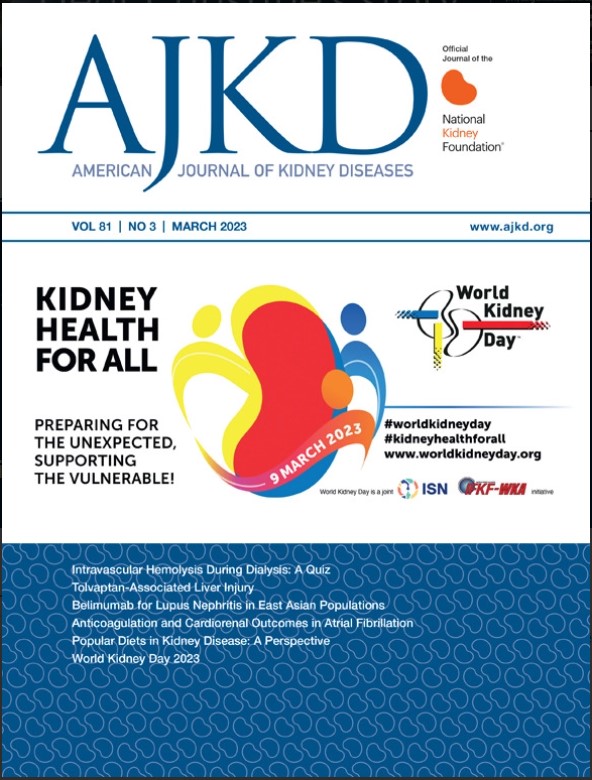推进肾脏疾病的基因检测:国家肾脏基金会工作组的报告。
IF 9.4
1区 医学
Q1 UROLOGY & NEPHROLOGY
引用次数: 0
摘要
美国约有 3700 万人患有慢性肾脏病,这是一种由多种原因引起的疾病。预计大约 10%或更多的成人肾脏疾病和大约 70%的儿童慢性肾脏疾病可由遗传原因引起。尽管基因检测技术不断进步,人们对某些肾脏疾病的基因基础也有了更多了解,但肾脏病学的基因检测仍落后于其他医学领域。要推进慢性肾脏病基因检测的实施,需要对基因检测的益处和后勤工作有更多的了解。因此,全美肾脏基金会召集了一个由遗传学、肾脏病学和相关领域具有不同专业知识的专家组成的工作组,以制定单基因疾病基因检测的建议,并确定导致肾脏疾病的少基因和多基因遗传风险因素。此外,还制定了基因检测临床决策算法和推进肾脏疾病基因检测的路线图。这项工作的一个重要方面是采用了改良的德尔菲程序,以就建议达成小组共识。本文所述的建议和资源为肾病学家和专职医疗人员提供了支持,以推动基因检测在肾脏疾病诊断和筛查中的应用。本文章由计算机程序翻译,如有差异,请以英文原文为准。
Advancing Genetic Testing in Kidney Diseases: Report From a National Kidney Foundation Working Group
About 37 million people in the United States have chronic kidney disease, a disease that encompasses multiple causes. About 10% or more of kidney diseases in adults and as many as 70% of selected chronic kidney diseases in children are expected to be explained by genetic causes. Despite the advances in genetic testing and an increasing understanding of the genetic bases of certain kidney diseases, genetic testing in nephrology lags behind other medical fields. More understanding of the benefits and logistics of genetic testing is needed to advance the implementation of genetic testing in chronic kidney diseases. Accordingly, the National Kidney Foundation convened a Working Group of experts with diverse expertise in genetics, nephrology, and allied fields to develop recommendations for genetic testing for monogenic disorders and to identify genetic risk factors for oligogenic and polygenic causes of kidney diseases. Algorithms for clinical decision making on genetic testing and a road map for advancing genetic testing in kidney diseases were generated. An important aspect of this initiative was the use of a modified Delphi process to reach group consensus on the recommendations. The recommendations and resources described herein provide support to nephrologists and allied health professionals to advance the use of genetic testing for diagnosis and screening of kidney diseases.
求助全文
通过发布文献求助,成功后即可免费获取论文全文。
去求助
来源期刊

American Journal of Kidney Diseases
医学-泌尿学与肾脏学
CiteScore
20.40
自引率
2.30%
发文量
732
审稿时长
3-8 weeks
期刊介绍:
The American Journal of Kidney Diseases (AJKD), the National Kidney Foundation's official journal, is globally recognized for its leadership in clinical nephrology content. Monthly, AJKD publishes original investigations on kidney diseases, hypertension, dialysis therapies, and kidney transplantation. Rigorous peer-review, statistical scrutiny, and a structured format characterize the publication process. Each issue includes case reports unveiling new diseases and potential therapeutic strategies.
 求助内容:
求助内容: 应助结果提醒方式:
应助结果提醒方式:


